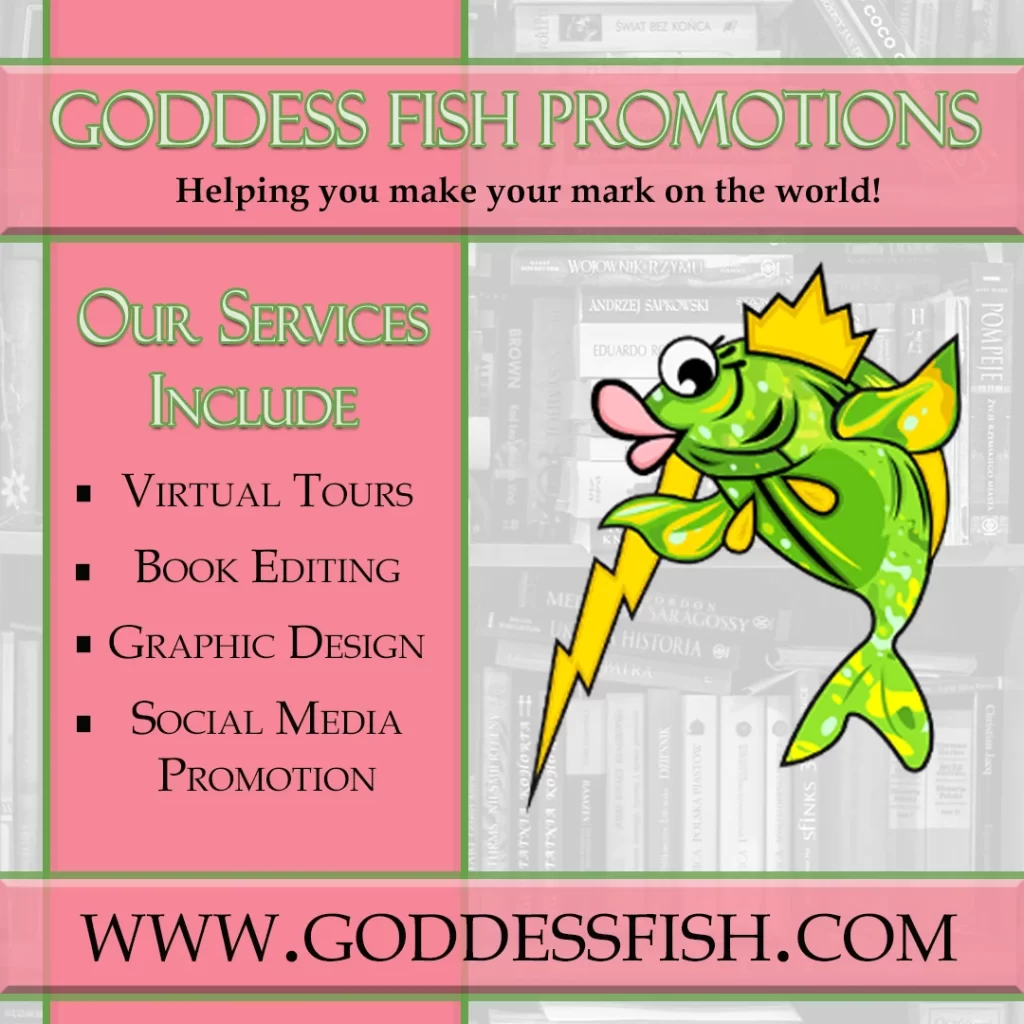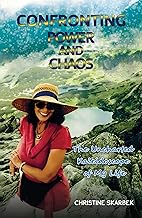The Celwyn Newsletter Issue 9
In this issue: Celwyn news, Goddess Fish Tours, a lively author debate, Gina Rae Mitchell, editing tips, and author interviews with:
Mim Eichmann, historical novelist
Jeff Ayers, fantasy novelist
Christine Skarbek, memoire
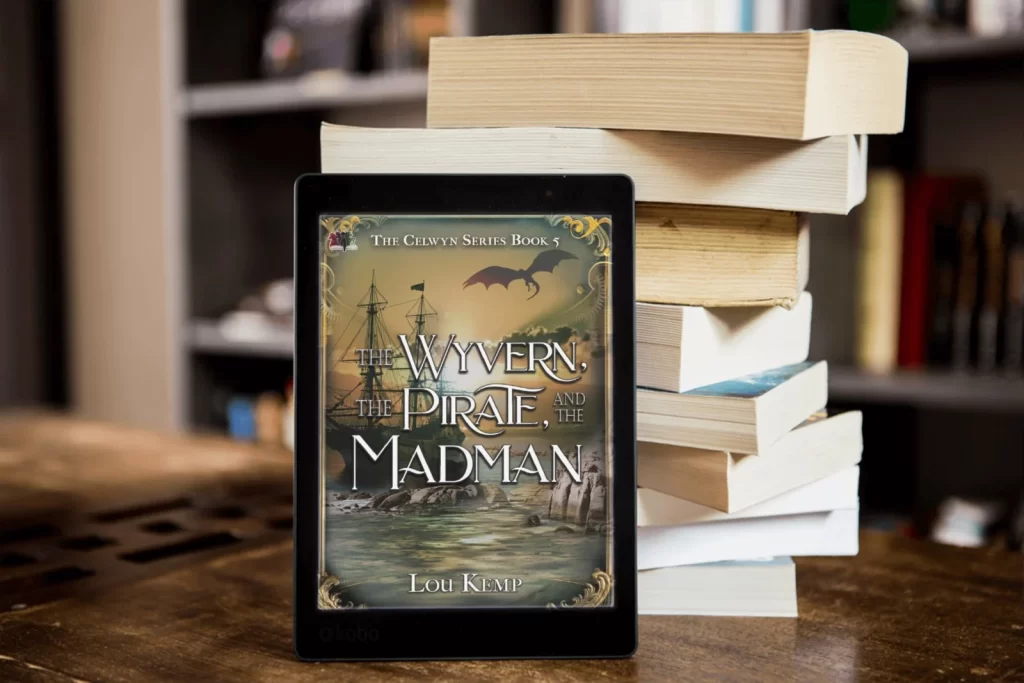
The Wyvern, the Pirate, and the Madman
Book 5 of the Celwyn series debuts January 2 2024! Available now!
It is 1870, and the immortal magician Celwyn, the automat Professor Xiau Kang, and Bartholomew, a scientist and widower from Sudan, set out on another adventure.
The adventurers leave the North Sea aboard Captain Nemo’s Nautilus, chasing a pirate ship and Captain Dearing. The pirates have kidnapped friend and vampire Simone Redifer, and they have stolen something precious from Captain Nemo.
Meanwhile, in Prague a dastardly murder forces Professor Kang back home.
The Wyvern, the Pirate, and the Madman is a steampunk fantasy filled with murder, magic, and adventure.
Author Debates: Does a new author need a literary agent?
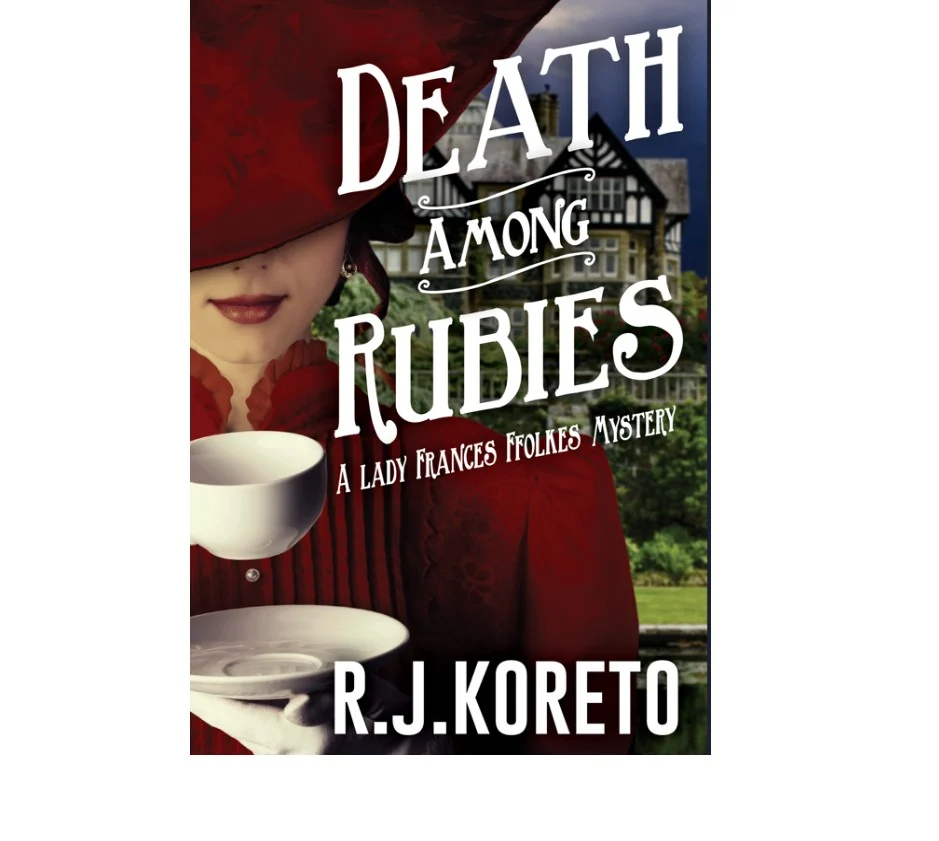
R.J. Koreto is the author of the Lady Frances Ffolkes, Alice Roosevelt and Historic Homes mystery series. He has published stories in EQMM, AHMM and multiple anthologies. He’s also been a merchant seaman, textbook editor, magazine writer and award-winning financial journalist. R.J. grew up in New York City and graduated from Vassar College with a degree in English and Latin. He and his wife have two grown daughters and divide their time between Rockland County, N.Y., and Martha’s Vineyard, Mass.
Please describe why you believe that a new author does need a literary agent.
At a minimum, an agent knows what publishers work with what kinds of books. It is possible, but difficult, to find this on your own, and even then a good agent knows nuances about which publishers are looking for what kinds of books. A really good agent (which I’m blessed with!) knows what is selling. What topics, settings or subgenres are peaking right now? I have lots of ideas. My agent is very frank telling me about some of them, “that kind of thing isn’t selling right now.”
How much of your opinion is based upon the assumption it will be an agent that is a good, or bad, match for the new author? Some authors are lone wolves and take no advice. That might be an issue as the alternative of publishing as an indie.
I’m going to answer this question with one example: “Writing the Blockbuster Novel” is written by Albert Zuckerman, one of the most prominent literary agents of all time. He got permission from thriller author Ken Follett to post side by side Follett’s original manuscript and the edited version. I always tell myself, “Follett made changes recommended by his agent and editors. When I am better and more successful than Follett, I will stop listening to advice. Until then, I’m keeping my eyes and ears open.” So that’s why an agent can be so useful, even essential. Of course, you do want an agent sympathetic with what you’re trying to achieve. And not everyone can get an agent. But at least find someone who can help you, if you decide to go independent.
Does the loss of control of their own work by having a publisher have anything to do with your point of view? Or does a new author need the guidance of a publishing house?
Everyone needs guidance. I don’t see it as “loss of control.” I see it as “getting advice.” In financial matters, agents and publishers are opponents. But working on your book, they’re on the same side! They want a successful product. As I writer, I know it’s hard to give up control. I remember being told to cut out an entire chapter, including a character I very much liked. “But it doesn’t move the plot forward,” I was told, so I removed it—everyone was right. I did bring the character back in the next book in the series, where I could weave him into the plot.
Is there anything else you have to say on the subject?
Another point: if you’re the right kind of writer you may not need an agent. I have an author friend who’s very savvy, extroverted and organized. She worked as her own agent and I was amazed at what she achieved for herself. I simply don’t have the personality for that. I’d probably call a publisher and say, “I have a good book you might want to publish. Actually, I’m sure you already have enough. I’m sorry to have bothered you.”
The prolific science fiction writer Isaac Asimov never had an agent, but got a very strong start as a short story writer that helped him make the leap into writing novels. I admire people who can go directly to publishers themselves. I joked at a conference that I became a writer because I was told I wouldn’t have to deal with people—”that turned out to be bait-and-switch.” So in the end I think it’s not so much about what you can do as what you’re good at.
Also for many new authors, especially those in niche genres or with a strong personal marketing platform, the traditional gatekeeping role of agents can be bypassed.
Death Among Rubies by Richard Koreto
Lady Frances Ffolkes finds more trouble than expected in this second cozy mystery from R. J. Koreto.
Lady Ffolkes is incensed when she finds out that her dear friends Gwendolyn and Thomasina have been subject to vicious threats. Promising to uncover their attacker, she travels with them to Kestrel’s Eyrie, the fabled estate belonging to Gwen’s family. But soon Frances faces an even greater problem, when Gwen’s father, a powerful diplomat, is stabbed to death with his prized ruby dagger.
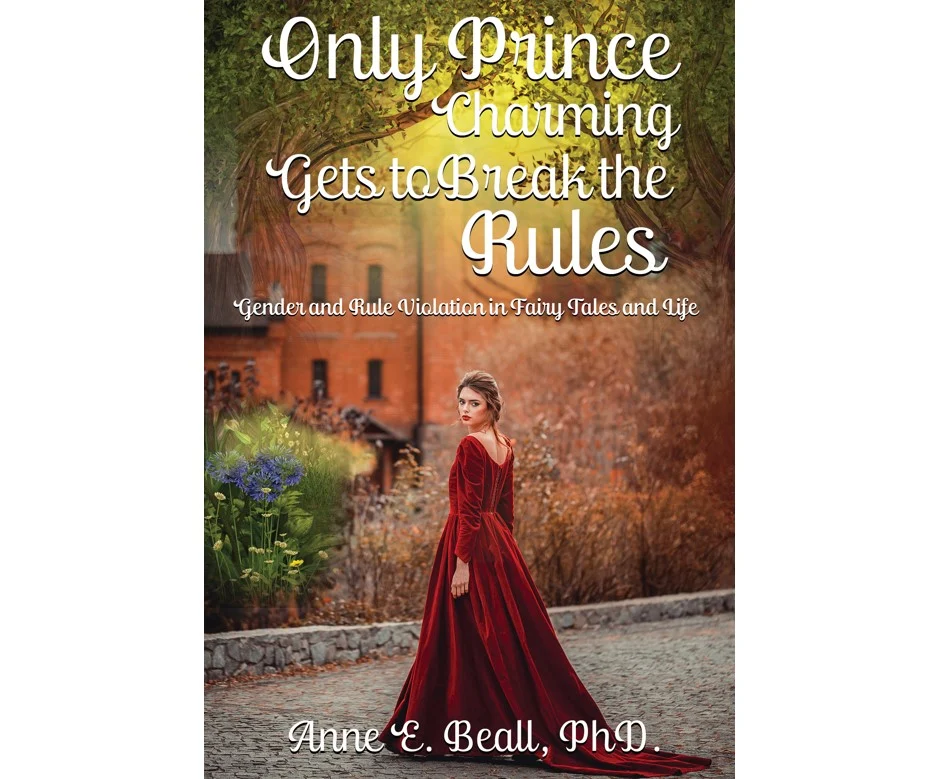
Anne E. Beall is an award-winning author whose books have been featured in People Magazine, Chicago Tribune, Toronto Sun, Hers Magazine, Ms. Career Girl, and she’s been interviewed by NBC, NPR, and WGN. She has also published in several literary journals including Minerva Rising, The Raven’s Perch, You Might Need to Hear This, Sad Girl Diaries Literary Magazine, and Grande Dame Literary Journal. She received her PhD in social psychology from Yale University and is the founder of the strategic market-research firm, Beall Research.
Please describe why you believe a new author doesn’t necessarily need a literary agent.
The necessity of a literary agent for a new author is not as absolute as it once was, primarily because of the evolving landscape of publishing. With the rise of self-publishing platforms and digital media, authors now have tremendous access to publish and market their work independently. This democratization of publishing allows authors to retain more control over their work, enjoy higher royalty rates, and directly engage with their audience. For many new authors, especially those in niche genres or with a strong personal marketing platform, the traditional gatekeeping role of agents can be bypassed. For example, E.L. James self-published “Fifty Shades of Grey” and built a huge following that led to a major publishing deal and the blockbuster film series.
How much of your opinion is based upon the assumption it will be an agent that is a good, or bad, match for the new author? Some authors are lone wolves and take no advice. That might be an issue as the alternative of publishing as an indie.
It’s true that agent-author relationships vary. A great agent who can really sell your work, and who has access to major publishers could skyrocket your success. These individuals can offer industry expertise and they have valuable connections. However, many people have had their work rejected by many agents. And not all agents are equally effective for every author. For example, Kathryn Stockett’s book, The Help, was rejected by over 60 agents. It was only when she found Susan Ramer that she was able to sell the book to a traditional publisher.
Some authors, particularly those who are self-motivated, well-versed in the industry, or have a clear vision for their work that doesn’t align with traditional publishing norms, might find an agent more restrictive than beneficial. The ‘lone wolf’ authors, who prefer complete creative and business control, may find self-publishing more fulfilling and effective. I’ve known several authors, including myself, who have successful books that were not published with an agent. I’ve also known other authors who have agents and they’ve felt stifled and told me their work didn’t benefit from this relationship. Their books have not necessarily done well, and they don’t earn much from them.
Does the loss of control of their own work by having a publisher have anything to do with your point of view? Or does a new author need the guidance of a publishing house?
The loss of control over one’s work is a significant consideration. Traditional publishing, often accessed through agents, can mean giving over significant control about major editorial decisions, marketing, and publication timelines. For some new authors, this trade-off is worth the guidance and resources a publishing house provides. However, others may prioritize retaining complete creative control and flexibility, making self-publishing a more appealing option.
Is there anything else you have to say on the subject?
There is not one optimal path for everyone; agents can work for some authors and not for others. It depends on so many factors. The decision to find a literary agent should be based on your specific goals, the strengths you have, and the specific demands of the market you’re writing for. In today’s diverse publishing environment, success can be found through various paths, and the role of a literary agent, while still significant for many, is just one of several options available to authors.
Only Prince Charming Gets to Break the Rules by Anne Beall.
Explore the fascinating link between gender stereotypes in fairy tales and real-world life with Only Prince Charming Gets to Break the Rules: Gender and Rule Violation in Fairy Tales and Life. This thought-provoking book carefully analyzes 200 folktales and fairy tales from around the world, uncovering a universal disparity in how male and female characters are punished for breaking the rules.
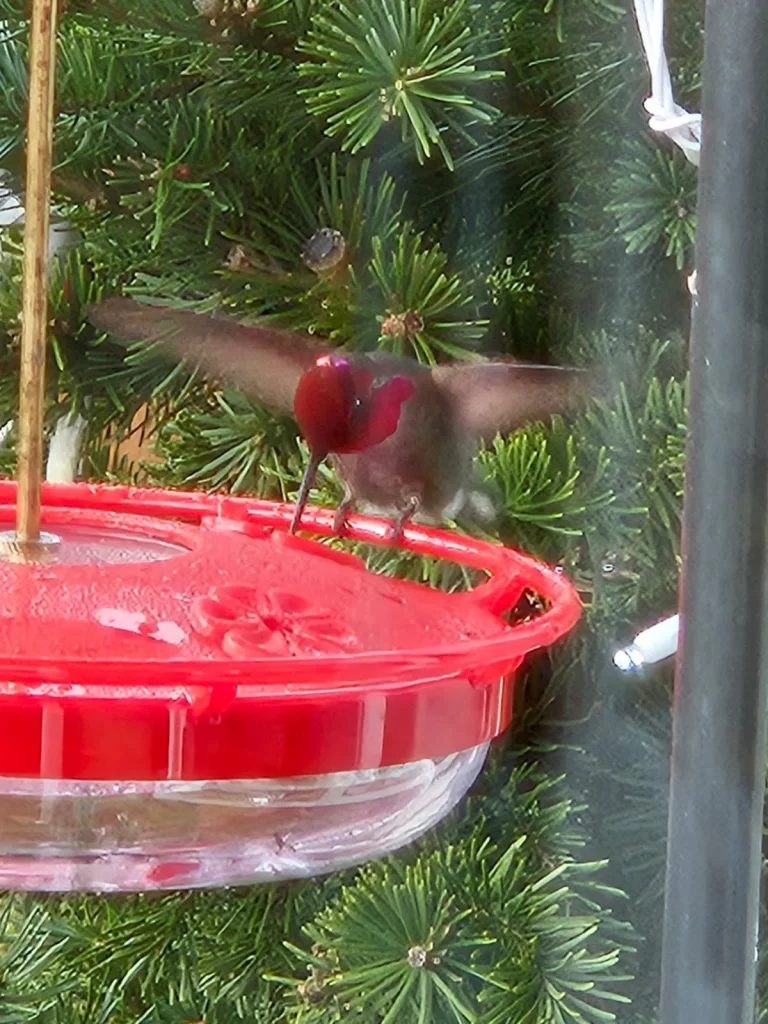
Celwyn’s Cats:
No cat, just Celwyn’s fat hummingbird. It’s feathers look dark until it turns its head and you see the red.
Interview with Historical Fiction Novelist Mim Eichmann
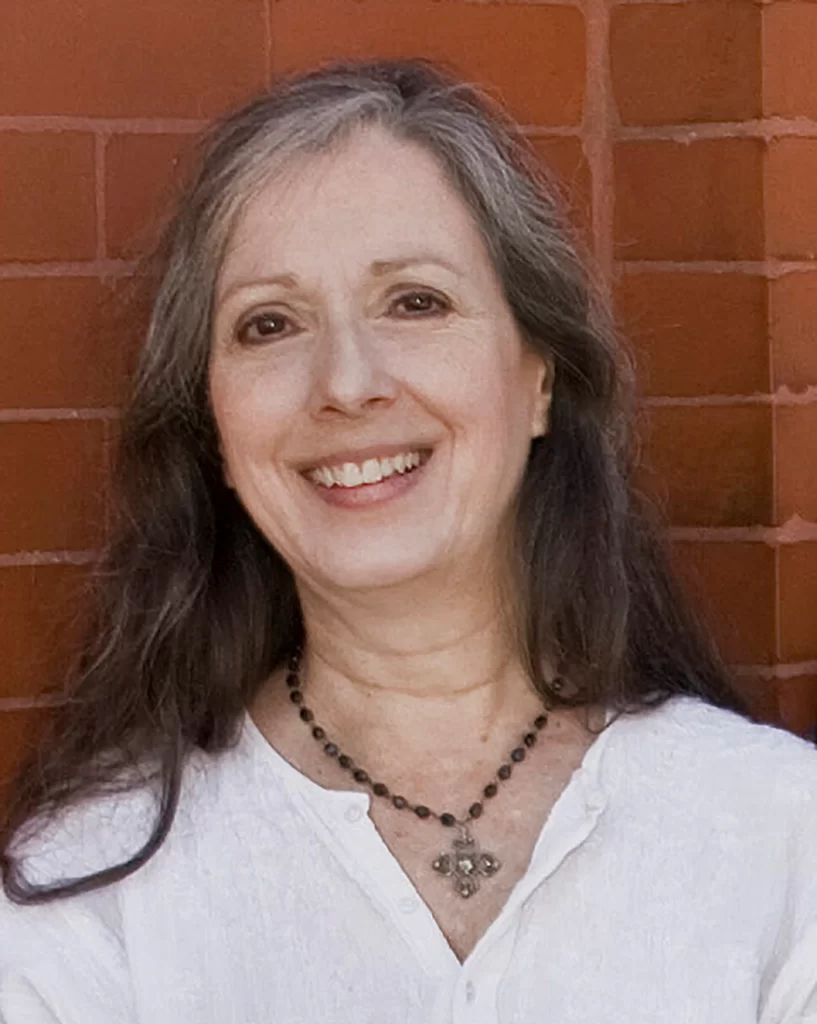
Mim Eichmann is a graduate from the Jordan College of Music at Butler University in Indianapolis, IN. The Chicago-area based author has found that her creative journey has taken her down many exciting, interwoven pathways as an award-winning published lyricist, short story author, songwriter, musician and novelist. www.mimeichmann.com
For the premise of one of your books, please show how the outcome could have been changed if history had been different. (i.e. what if a certain known fact had never occurred and something else did?)
An example is the third and final novel in my historical fiction series, TAYVIE’S STORY, which will be published in the summer 2024. Much of the book takes place in Occupied France during World War II. Most of Europe and the United States were still recovering from the devastating losses suffered during the Great War (World War I), along with the resulting pandemics, and they made some extremely risky investment practices that ultimately plunged the civilized world into the largest economic depression in global history.
This contributed greatly to the chain of events that completely paralyzed the resources of entire nations and allowed the Nazi Party to rise to power. If the internal turmoil facing individual nations had been even modestly overcome at any point, it’s highly doubtful the Nazi party would be anything other than an isolated footnote in our history books.
Which of your books was the hardest to write, and why?
Ironically, I never had any interest in researching or writing about Europe during World War II when I began working on TAYVIE’S STORY. That time frame roughly parallels another of my books, MUSKRAT RAMBLE. However, once I’d fallen into my typical rabbit hole trance of research, I became quite fascinated!
Mim Eichmann is quite proud of A SPARROW ALONE (2020): “a provocative coming-of-age saga of female empowerment set during the historic 1890s Cripple Creek, Colorado gold rush.” The novel is the first of a (standalone) historical fiction series, Amazon best seller and semi-finalist in the 2020 Illinois Library Association’s Soon-to-be-Famous Project.
Interview with fantasy author Jeff Ayers
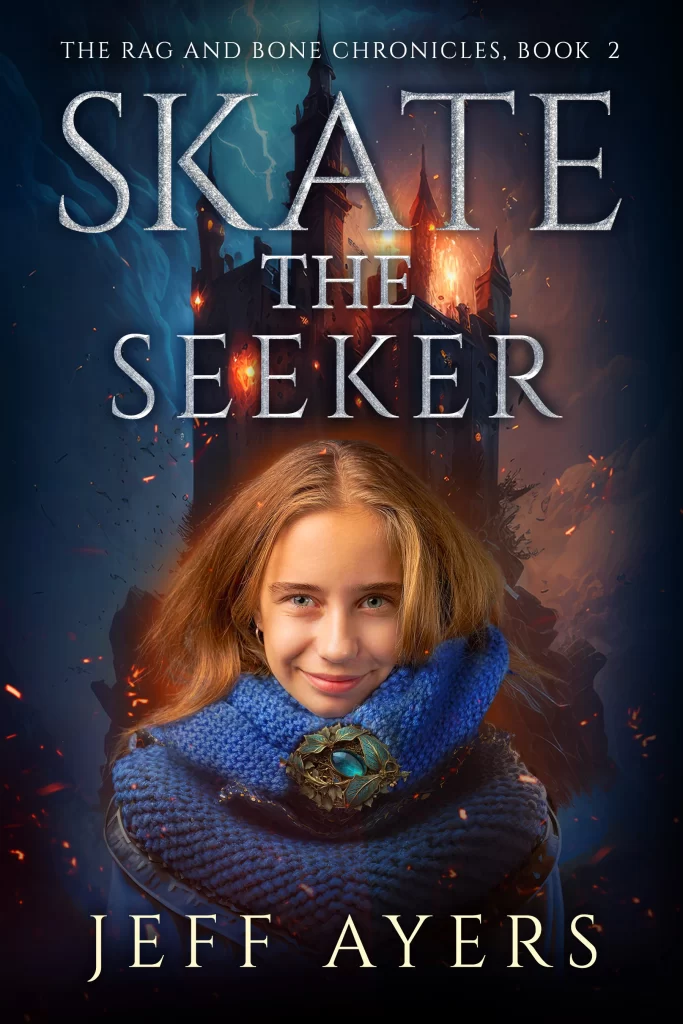
Jeff Ayers is an author and avid reader of fantasy and science fiction stories. He began playing with the idea of writing a book way back in middle school, and has been practicing ever since. He is an English teacher living in northwest Arkansas (Go, Razorbacks!) with his wife, two kids, and two dogs, whom he loves very dearly.
Who are the audience who buy your books, and does that surprise you?
I wrote the Skate books with young adults in mind – fantasy readers who are just getting to their adult lives. I’ve found that many of my readers fall outside of that scope, with some below, and more above. It wasn’t my expectation going in, but I am glad to find that my work is appealing to a broader range of readers than I first anticipated.
If you were to write in another genre a few years from now, what would it be?
The first full book I ever wrote (it was never published; don’t go looking for it) was science fiction. I don’t imagine I’m completely done with that yet. I may branch out into some form of horror as well. I love reading good narrative non-fiction, but I don’t think I’ll be dipping my toes into that any time soon as a writer.
How much do you put yourself in the shoes of the reader? Do you hear anything from them on where they want the series to go?
One of the things I have to consider during the writing process, especially during rewriting and revision, is the reader’s perspective – questions about plot points, whether this is interesting enough, whether the reader will care about what’s happening, clunkiness of sentences. The reader’s experience has to be at the core of what we do.
Most of what I hear from people who’ve read my books are questions about the next installment, which is wonderful because it shows interest in what I’ve done, and questions about the timing of the next installment, which is terrible because I don’t go as quickly as I’d like.
Book 2 The Rag and Bone Chronicles
Skate the Seeker
Beware of Spilling Ink!
Skate is a thief, trained and owned by the local crime syndicate, the Ink. When she tries to burgle a shut-in’s home, she gets caught by the owner—a powerful undead wizard. He makes a deal with her: “borrow” books from other wizards in return for a place to stay.
Caught between her growing fondness for the wizard and her past with the crime syndicate, Skate doesn’t know where her loyalties lie. But she’d better figure it out, because there’s a new player in town, one whose magical hypnotism puts them all at risk.
The sequel, Skate the Seeker, is out now!
Goddess Fish Promotions: Great for Readers and Authors Alike
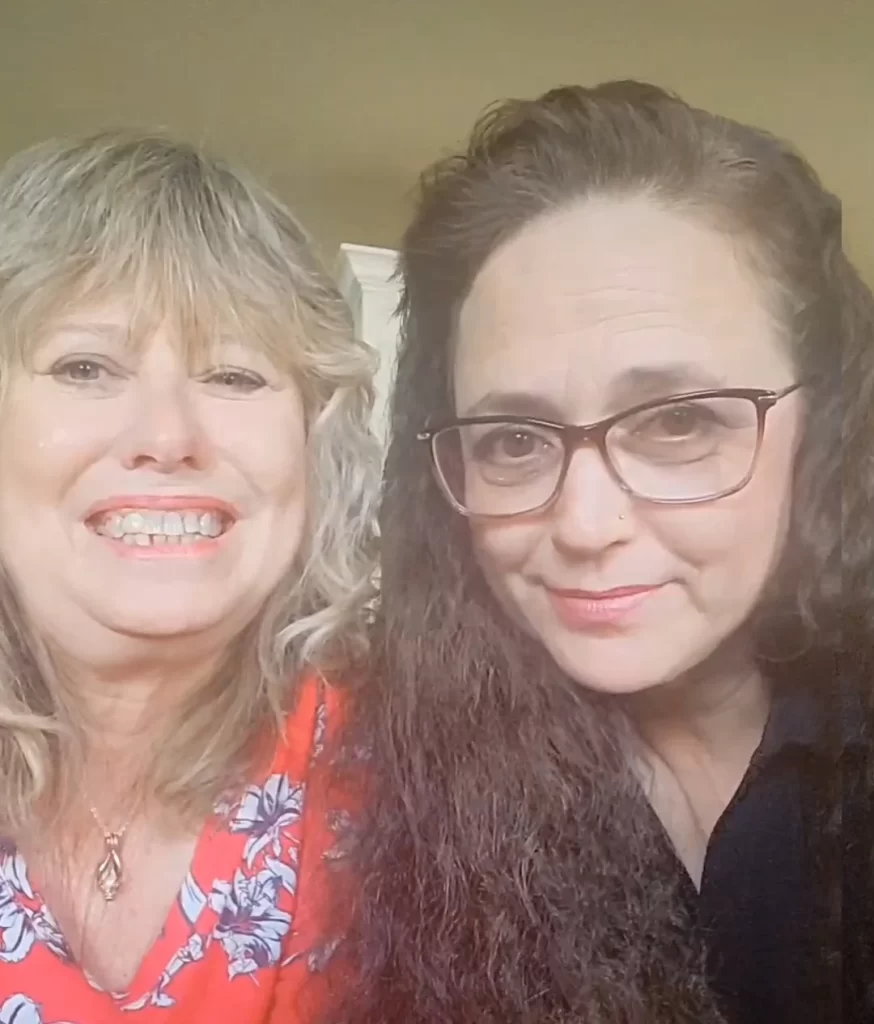
Goddess Fish Promotions, Judy and Marianne, was established October 14, 2008. Why? When Marianne became a published author and got her the first taste of trying to promote a book on a budget, there was only one other virtual book tour company in place at the time, and their fees were simply too high for a small press author. Things have changed, and Goddess Fish is one of the big fishes in the industry.
1. Describe what book tours do (i.e. book launch, etc.). Include average length of tours, sample blog stops with their links.
A virtual book tour is simply to get more exposure for your book for any reason. It can be a new release, or just a book you want to get out there more. We can do various types of tours that last from 1 day to 16 weeks. If the author doesn’t find a package to meet their needs, they can reach out and we’ll do what we can to fit something specially for them.
Some blog stops:
https://fabulousandbrunette.blogspot.com/2023/11/saving-madonna-by-kate-bristow-book.html
https://novelsalive.com/2023/11/22/5-star-review-one-love-for-liv-by-marianne-arkins/
2. Please discuss virtual book tours as an opportunity to interact with an author, read a sample, and more.
We believe a tour is more than introducing the public to your book. It’s also about creating relationships with your readers and building your online presence. Readers are more likely to buy books from authors they feel a kinship with, with one they know, with one who matters. We recommend tours with interviews and guest posts (which can be repurposed on the author’s own blog or website after the tour) in order to build rapport with potential readers. We believe building your brand and following is the most important thing.
3. Book tours include contests and ways to find great new authors.
We require a giveaway during our tours as an incentive for people to actually come visit the post. It’s a “loss leader” to get people there to read about you and your book, and hopefully have them fall in love with the story and want to know more. It doesn’t have to be huge–we actually haven’t found a correlation between larger prizes and more traffic. Just something to get potential readers to give your tour a try.
http://www.goddessfish.com
http://www.goddessfishpromotions.blogspot.com
TikTok: https://www.tiktok.com/@goddessfishpromotions
Facebook: https://www.facebook.com/GoddessFishPromotions
Twitter: https://twitter.com/GoddessFishPinterest: http://www.pinterest.com/goddessfish/Instagram: https://www.instagram.com/goddessfishpromotions/
Celebrating Fifteen Years of Helping Authors Succeed! We offer book editing services, graphic design, virtual tours and more…
Interview with memoire novelist Christine Skarbek
With an MA in journalism from the University of Iowa, Christine Skarbek has worked as a foreign student exchange coordinator in Atlanta GA, written op-eds for several newspapers, and co-authored three screenplays.
One of these screenplays is a biopic on the life of Polish Countess Krystyna Skarbek and is currently being pitched in Hollywood. It is based on the interviews Christine conducted with the Countess’s WWII associates in the early 1990s.
Do you read mysteries or thrillers in your spare time? No, I spend whatever free reading time I have perusing histories and biographies.
How hard is it for you to get into what the reader expects from your writing? I always consider the reader and try to frame my message in such a way as to bring the reader into my world.
Will you ever write fiction? I would never attempt to write fiction. Though I admire true novelists, I am just not a creative person and do not know how to structure a plot or character arc, etc.
Did you have any difficulties editing your memoire? Thankfully I had someone read the rough draft and asked her to see if there was one overarching image she took away from the whole. She said it is a kaleidoscope. That gave me a framework and I began to reread it to see what fit inside the framework of a kaleidoscope. Everything that fit, I kept. If it didn’t fit, I eliminated it. It proved to be the best way to edit it.
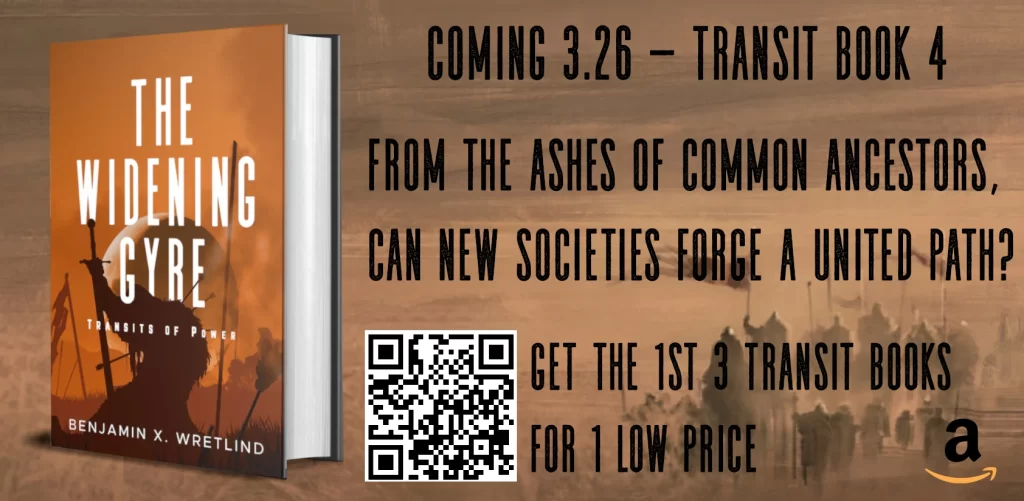
Artificial Intelligence & Editing
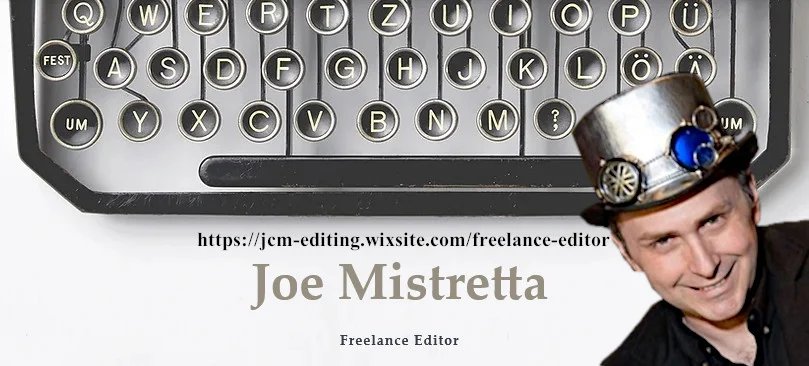
Let’s talk AI. AI can be a helpful tool in many situations. It is, however, not meant to replace the human touch. AI has no nuances, no emotion, and no subtlety … no matter how hard it tries. It only knows what it is taught and cannot adapt or think critically beyond the input given.
Why am I saying this? To quote someone whose name at the moment I can’t remember, “Why would I want to take the time to read something someone didn’t take the time to write?”
The same can be applied to AI as a sole editor. Sure, it can help with some things. It can help point out areas that might be incorrect. But sometimes, it suggests corrections on things that are, in fact, correct. Also, it does not allow for authors to speak in their “author voice.”
There are no split infinitives or extra phrases allowed. AI always tries to cut down the text to the bare minimum of what is needed. While that is a general rule of thumb for storytelling, if every author followed the rules so strictly, there would be no need for more than one author.
So, for all you self-published authors, first-timers working on your manuscript, or anyone else who thinks that Grammarly or ProWritingAid is good enough, please understand that it is not; editing is much harder and more nuanced than AI can understand.
Never abandon the human touch for the sake of saving money. As someone said about not wanting to take the time to read something someone didn’t take the time to write, why would anyone want to spend money on a book the author didn’t think was worth spending money on themself? A good editor isn’t cheap, and a cheap editor isn’t good.
Note from the newsletter editor-in-chief aka Lou Kemp; I’ve had many editors over the years and I liken them to cars — I’ve have had a everything from a nice dependable Chevy to a Rolls Royce. Joseph Mistretta is a classic red MG.
Joseph’s self-proclaimed shameless self-promotion offer: If you are looking for an editor, until January 15, 2024 please feel free to email me the first 10 pages of your manuscript (see formatting specs below) and for those pages I will send you back edits free of charge. If you like what you receive and want to continue working with me, then hooray!
Formatting: 8.5 x 11 page size with 1-inch margins all around. Lines double-spaced. Times New Roman 12-point font. Saved as a .docx. Email to [email protected]. Subject line: 10 Page Holiday Offer.
I will gladly look over those pages and get them back to you asap!
Reading Goals for 2024: 10 Tips to Success!
Have You Set Reading Goals for 2024? By Gina Mitchell
Reading goals are personal targets individuals set to regulate and enhance their reading habits. They can include the number of books to read, a specific genre exploration, or dedicating a certain amount of time to reading each day.
Setting clear reading goals can help you stay motivated, broaden your literary horizons, and make reading a more intentional part of your routine. Whether it’s a goal to read a certain number of books in a month or to delve into a new genre, tailoring your reading goals to your preferences can make the experience more enjoyable and rewarding.
Personalized Targets: Reading goals should be tailored to your preferences and pace, considering factors like the number of books, genres, or specific authors you want to explore. This personalization enhances engagement and satisfaction.
Measurable Objectives: Set clear and measurable targets, such as a specific number of books to read within a timeframe or allocating a certain amount of time each day to reading. Measurable goals help track progress and maintain accountability.
Diverse Exploration: Encourage a diverse range of reading materials. Whether it’s fiction, non-fiction, classics, or contemporary works, diversifying your reading goals broadens your literary horizons and introduces you to new perspectives.
Consistent Habits: Establishing a regular reading routine can be as important as the goals themselves. Consistency builds the habit of reading, making it easier to achieve and maintain your set objectives over time.
Reflection and Adaptation: Regularly assess your progress and adjust your reading goals accordingly. If a particular goal becomes too challenging or if you discover new interests, be flexible in adapting your objectives to ensure that your reading experience remains enjoyable and fulfilling.
Personal Growth: Reading goals contribute to personal growth by expanding knowledge, improving critical thinking, and enhancing communication skills. It’s a journey that goes beyond the pages of a book.
Flexible Approach: Reading goals can be tailored to individual preferences and schedules. They don’t have to be daunting; even small goals, like reading a few pages each day, can make a significant impact over time.
Entertainment and Escape: Reading is not solely about self-improvement; it’s also a form of entertainment and escape. Encourage non-readers to explore genres that align with their interests, offering an enjoyable and immersive experience.
Community and Connection: Share the social aspect of reading. Joining book clubs or discussing books with friends can create a sense of community. Reading becomes a shared experience, fostering connections and conversations.
Mindful Break: Reading provides a mindful break from digital screens and daily stress. It’s a valuable opportunity to unplug, relax, and engage with a story or topic at your own pace. It’s a form of self-care that can fit into any lifestyle.
The Celwyn Series YouTube channel
Authors: what music do you write to, or need, for background and inspiration?
About 25% of the authors interviewed said “I don’t.” Susan’s succinct response illustrated it nicely:
“Absolutely none. I write in the peaceful quiet.” – Susan McCormick author of The Antidote and The Fog Ladies series.
Here is the list of those who love a great, or inspiring, background:
Waking Gods playlist on Spotify, Kait Disney-Leugers author of Antique Magic
Any blues by Albert King– especially, “Born Under a Bad Sign.”, Curt Colbert author of All Along the Watchtower
Carol King’s Tapestry, MJ Miller author of of Phantom of Execution Rocks
Anything by Jo Blankenburg (mostly the albums Valkyrie and Elysium) Benjamin X. Wretlind author of The Widening Gyre
Bolero by Maurice Ravel, Bob Van Laerhoven author of The Shadow Of The Mole
“Heart of Glass.” I renewed my love affair with Deborah Harry, Richard Koreto author of The Turnbull Murders.
The soundtrack to the Phantom of the Opera, Lou Kemp author of The Violins Played before Junstan
Bela Fleck Drive, Joel Flanagan-Grannemann, author of Fairy Court in Exile
90s/00s rock and anything by Christopher Tin, Jeff Ayers author of The Rag and Bones Chronicles
Alternative rock and movie soundtracks, K.E.Andrews author of Hills of Heather and Bone
Meditation music on YouTube, Tricia Larochelle author of the Sara Browne mystery series.
“Lo Fi” It’s very “chill.” Lucas Lamont author of Roman’s Reckoning
“Legend Anthology” by Two Steps from Hell (the Instrumental songs) Kimberly Werntz author of The Adventures of a Traveler’s Wife.
As much Beethoven and Dvorak as possible. Christine Skarbek author of Confronting Power and Chaos: the Uncharted Kaleidoscope of My Life.
